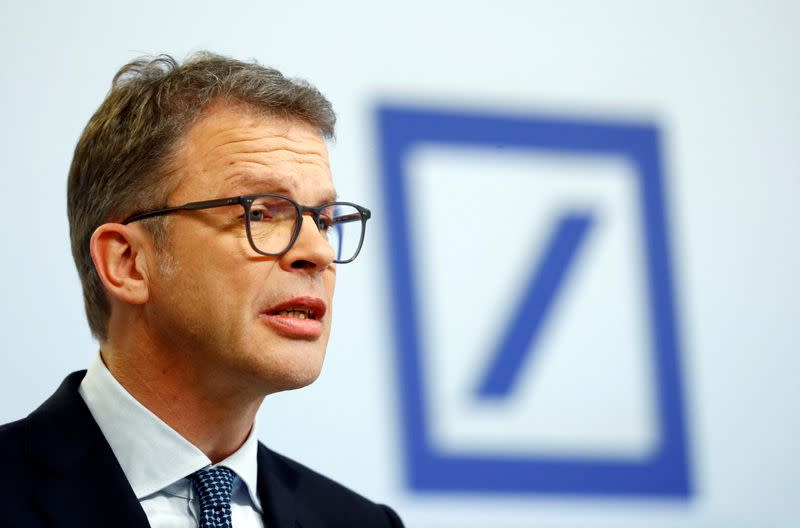Factbox-German blue-chip CEOs denounce rise of far right

By Sarah Marsh
BERLIN (Reuters) -German companies and their CEOs are increasingly warning about the threat of right-wing extremism to Europe's largest economy following a report about a meeting where plans for mass deportations of citizens of foreign origin were discussed.
Germany's business leaders typically stay out of party politics given swings in power and have long stayed silent about the rise of the nationalist Alternative for Germany (AfD), which is now polling second in nationwide polls.
The AfD has sought to distance itself from the deportation proposal aired at a meeting with right-wing radicals, saying it is not party policy. But the report has sparked national outrage and concerns over the country's attractiveness to foreign labour and investment.
On Friday, AfD deputy leader Peter Boehringer told Reuters accusations that the party harmed the economy were part of a comprehensive "state and media campaign against the AfD". He said companies criticising the party were motivated by the fact they depended on state contracts, guarantees and regulatory goodwill.
German companies' main problem, he said, was high energy costs caused by bad policies of the political establishment, namely the exit from nuclear energy and the green transition.
Here are some examples of statements by companies:
GERMANY'S LARGEST LENDER DEUTSCHE BANK AG:
CEO Christian Sewing on LinkedIn: "The rise of the far right represents a grave danger to our democratic freedoms and Germany as place to do business. Racism and intolerance should have no place in a free country with a globally oriented economy. Investors, who are attracted to Germany also for our strong democratic values, look upon these developments and hesitate about deploying capital.
"As a society we must unite against extremists and stand up for a culture of debate that is based in facts, good sense and respect. At the same time, politicians and business leaders need to be able to show people that their problems and concerns are taken seriously and that the answers to them do not come from the far right."
CARMAKER VOLKSWAGEN
In a statement to Reuters: "The Volkswagen Group stands for an open society, respect and tolerance and is against hate and xenophobia ... Particularly in these challenging times it is important to strengthen social cohesion instead of divide.
"We are a global company, we sell our products in more than 150 countries and stand for cosmopolitanism, free exchange over country borders and open, fair world trade. As a result we are against protectionism, demands for an exit from the EU, climate change denial or the instrumentalisation of economic concerns to fuel resistance against a necessary transition."
SOFTWARE COMPANY SAP
CEO Christian Klein, asked if the rise of support for the AfD was a problem for Germany, in an interview with German broadcaster Deutschlandfunk:
"It is a problem. If you cross our campus, you will see many foreign employees, that are the top talent from Asia and the United States, who are happy to come to us. And we need them to deliver innovation. If they don't feel welcome anymore, if they feel the situation is getting out of control, then that will be a problem.
"Germany has benefited a lot from getting great talent from abroad, not just in the tech sector but also in other industries, and this is absolutely a dangerous development."
CHIP MANUFACTURER INFINEON:
CEO Jochen Hanebeck on LinkedIn: "The basic values of our peaceful coexistence are non negotiable. Hate and exclusion should not have any place in our society. The idea of so-called remigration is inhumane."
"To all the colleagues at Infineon Technologies and those who want to become employees here, I want to say: I am not interested in where you come from, what I am interested in is what you want to achieve."
DAIMLER TRUCK:
CEO Martin Daum to German magazine Der Spiegel: "The rise of the AfD does not just harm the German economy but poisons the social ambience too ... The big problems we have are global ones, whether climate change or wealth gaps that lead to migration."
Daum added that cooperation, exchange and compromise were therefore necessary: "These are concepts that I do not find in the AfD."
SIEMENS ENERGY
Supervisory board chairman Joe Kaeser, on reports of the proposals for mass deportation, said in an interview with Reuters: "If everything is true as reported, then that is absolutely disgusting. This triggers bitter memories."
Highlighting lessons from Germany history, Kaeser warned of the damage to Germany's image in the world and called on German business to publicly warn of the consequences. He said he would take part in demonstrations against right-wing extremism.
"We must not repeat this mistake. I am really worried about our democracy," he said. Speaking of understanding, tolerance and respect as the basis for free basic order in German society, he added: "Anyone who votes for the AfD is choosing to lose the prosperity of our country and its citizens."
(Reporting by Sarah Marsh; Editing by Matthias Williams and Alison Williams)

 Yahoo Finance
Yahoo Finance 